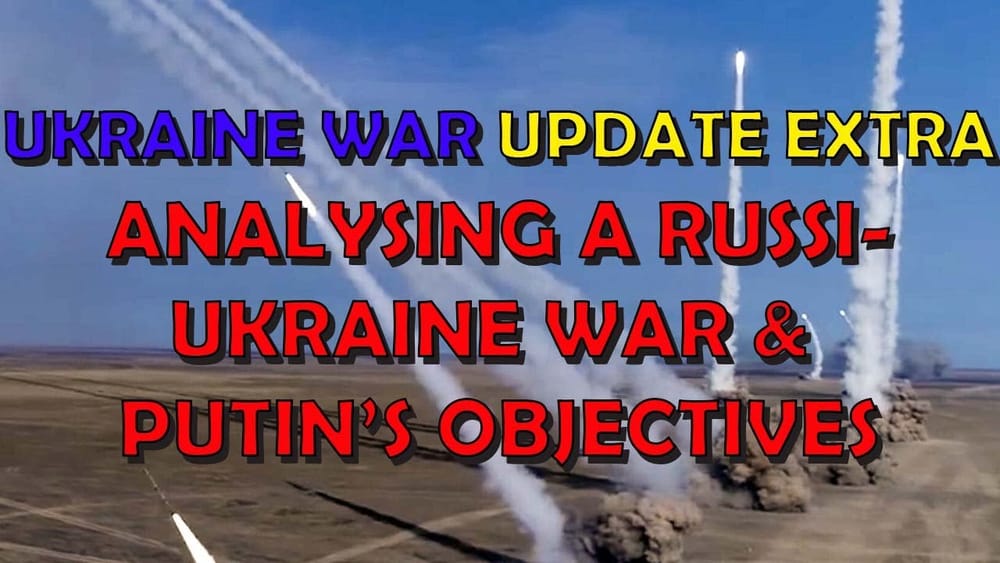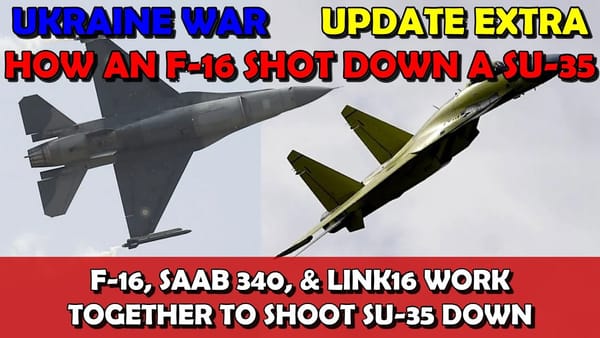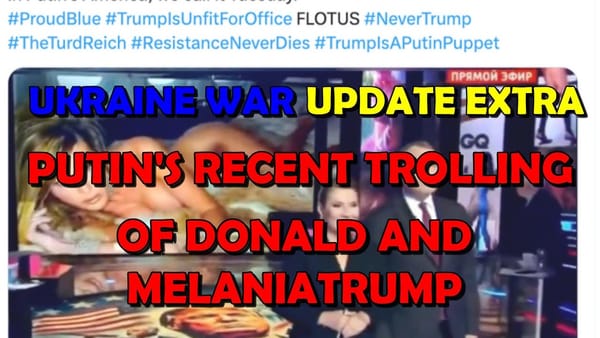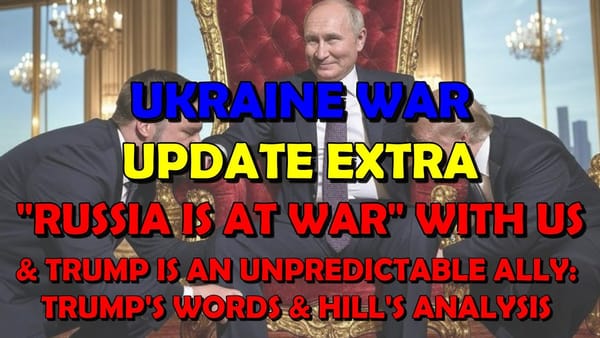Ukraine War Upd. EXTRA: A Russia-NATO War and Putin's Goals.
Table of Contents 📖
"I wonder whether he [Putin] just doesn't have a worthwhile objective in place... He might have these grand ideas...Yeah, I'd love to fly to the moon. Yeah, but you're on a desert island, mate, and you've got nothing but a couple of sticks and a bit of rock to throw together, so you ain't going to the moon."
Hello Team
🎦 00:00-00:25⏩
Jonathan welcomes viewers to an "Extra" episode of ATPG, promising "tidbits and nuggets" on the war in Ukraine. He introduces the main topic: a thread by Fabian Hoffman, a researcher at the University of Oslo, on the potential for a Russia-NATO war.
Return to top⤴️
Thread: Fabian Hoffman on Russia-NATO War
🎦 00:25-15:32⏩
Jonathan dives into Fabian Hoffman's thread, highlighting the following points:
- Asymmetry of perspectives: Russia and NATO view a potential conflict very differently.
- Limitations of the Ukraine war as a model: A NATO-Russia war would be far more multifaceted, involving air and naval forces to a greater extent.
- Russia's focus on escalation control: Their doctrine centres around "de-escalation strikes" and "aggressive sanctuarization" to achieve a swift victory on their terms.
- The role of nuclear deterrence: Russia aims to leverage the fear of nuclear escalation to force NATO into negotiations and concessions.
- The West's lack of resolve: Hoffman argues that Russia perceives Western democracies, particularly the US, as lacking the resolve to respond decisively, emboldening their risk-taking behaviour.
- The need for NATO to adapt: Hoffman urges a shift from a "tripwire" position to a posture capable of denying Russia any meaningful territorial gains within NATO, emphasising a two to three-year window for rearmament.
- Public discourse on escalation: Jonathan contrasts the open discussions of nuclear scenarios in Russian media with the relative silence on such matters in the West.
Thread Response: Jeffrey Michaels' Critique of Hoffman's Thread
🎦 15:32-30:15⏩
Jonathan introduces a response thread by Jeffrey Michaels, who, while agreeing that more nuanced thinking is needed, critiques Hoffman's approach:
- The danger of flawed scenarios: Basing policy on flawed assumptions leads to flawed policy.
- Avoiding mirror-imaging: While cautioning against mirroring Russian thinking, Michaels also warns against assuming Russia will fight a conventional war like the one in Ukraine.
- The importance of Russian objectives: Understanding Russia's desired end-state is crucial to deciphering their actions. Without clarity on their objectives, analysing their "ways and means" is futile.
- Jonathan's interjection on goal-oriented morality: He draws parallels to his own philosophy, arguing that ethical and political decisions hinge on defining a desired end goal. Without a clear vision of the world we want, debates become muddled and unproductive.
- The Kremlin's reluctance to confront NATO: Despite years of such discussions, Russia has not engaged in a direct conflict with NATO. This suggests a degree of deterrence is still in place.
- Questioning the "rearmament" timeline: Michaels challenges the arbitrary timelines given for rearmament, questioning their basis and arguing that they become irrelevant if the underlying scenario is flawed.
- Internal vs. external objectives: The focus on Russia's external objectives may overshadow the potential for internal factors, such as domestic political gains, driving their actions.
- The possibility of Russian irrationality: Michaels doesn't discount the possibility of Russia acting irrationally, blundering into a conflict without a coherent strategy.
- Jonathan's agreement: He concurs, arguing that Putin's invasion of Ukraine was based on faulty intelligence and a lack of a "Plan B," leading to a reactive and seemingly aimless campaign.
Russian objectives and the importance of defining them
🎦 30:15-32:00⏩
Jonathan reiterates the importance of discerning Russia's objectives. He ponders Putin's motivations, questioning whether even Putin himself has a clear vision of what constitutes "victory." Jonathan draws parallels to his own earlier writings, where he highlighted the difficulty in countering Russia's actions without understanding their ultimate goals. He emphasises that Russia's rhetoric, such as "denazifying" Ukraine, may not reflect their true objectives. Jonathan suggests that even seizing small portions of NATO territory could serve Russia's goal of scoring political points both domestically and internationally.
Return to top⤴️
Russian Public Opinion on the War - Sidewalk Interview
🎦 32:00-35:33⏩
Jonathan shares a "sidewalk interview" with a Russian citizen, showcasing dissenting voices within Russia. The interviewee criticises the war, questioning the need for annexation and pointing to the economic struggles faced by ordinary Russians. Jonathan highlights the significance of such dissent, particularly the individual's willingness to criticise Putin directly. He expresses concern for the interviewee's safety given the repressive environment in Russia.
Return to top⤴️
Wrap up
🎦 35:33-END
Jonathan concludes the episode by thanking his viewers for their support. He gives a special shout-out to his members and those who contribute financially to the channel.
Return to top⤴️



